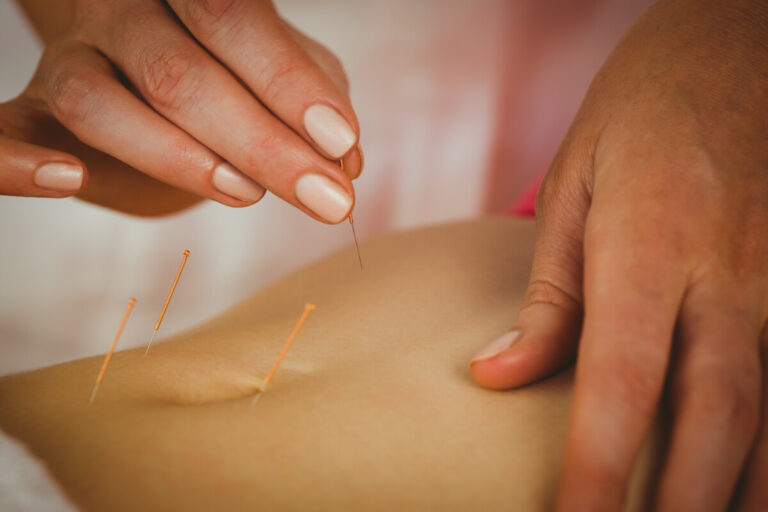If you have heard about acupuncture but are still unsure about what it really is, you are not alone! Acupuncture is an ancient practice that has been gaining more popularity in the modern world, especially for those seeking natural alternatives for pain relief and overall health improvement. Let’s explore everything you need to know about this fascinating technique.
What is Acupuncture?
Acupuncture is a form of traditional Chinese medicine that uses thin needles inserted into specific points on the body. This technique has been used for thousands of years and is believed to help balance the flow of vital energy, known as “Qi” (pronounced “chi”), throughout the body. The idea is that Qi flows through channels called meridians, and blockages or imbalances in this flow can cause illnesses or discomfort.
How Does Acupuncture Work?
Meridian Theory
Acupuncture operates on the idea that there are meridians, or channels, in the body through which energy flows. There are 12 main meridians that correspond to different organs and systems in the body. By inserting needles into specific points along these meridians, acupuncturists believe they can restore energy balance and thus promote health and well-being.
Stimulation of Acupuncture Points
During an acupuncture session, the acupuncturist will assess your health condition and decide which points should be stimulated. The needles are inserted into the skin at specific depths, depending on the point and desired effect. Many people report feeling a tingling sensation or light pressure, but rarely pain.
Benefits of Acupuncture
Acupuncture is often sought for a variety of conditions and health issues. Here are some of the main reported benefits:
- Pain Relief: Many studies show that acupuncture can be effective in relieving various types of pain, including back pain, neck pain, arthritis, and headaches.
- Stress and Anxiety Reduction: Acupuncture can help reduce stress and anxiety levels, promoting a state of relaxation.
- Improved Sleep: For those suffering from insomnia or sleep-related problems, acupuncture can help regulate sleep patterns.
- Relief of Menopause Symptoms: Some women find that acupuncture helps alleviate symptoms such as hot flashes and irritability.
- Treatment of Migraines and Headaches: Acupuncture is often used as a complementary treatment to reduce the frequency and intensity of migraines.
- Strengthening of the Immune System: The practice can increase resistance to illnesses by improving immune function.
- Improved Digestion: Those suffering from digestive issues, such as irritable bowel syndrome, may find relief in acupuncture.
- Assistance in Fertility Treatments: Some people use acupuncture as part of a treatment plan to enhance fertility.
- Support in Smoking Cessation: Acupuncture can be a valuable resource for those trying to quit smoking.
- Mental Health Enhancement: In addition to reducing anxiety, acupuncture can help improve symptoms of depression and increase the overall sense of well-being.
Choosing the Best Acupuncture Clinic
Choosing the right clinic to receive acupuncture treatment is essential to ensuring a safe and effective experience. Here are some tips to help you find the best place to start your sessions:
- Check Credentials: Ensure that the acupuncturist is licensed and has proper training in acupuncture. Look for professionals who are members of respected associations in the field.
- Research Reviews: Read online reviews from patients who have undergone treatments at the clinic. This can offer valuable insight into the quality of care.
- Consult Personally: Schedule an initial consultation to discuss your needs and expectations with the acupuncturist. Make sure you feel comfortable and confident with the chosen professional.
- Observe Hygiene: The clinic should follow strict hygiene standards, with disposable needles and a clean, welcoming environment.
- Ask About Treatment: During the consultation, inquire about the proposed treatment plan, including the recommended number of sessions and expected goals.
What to Expect from an Acupuncture Session
If you are considering trying acupuncture, here is what you can expect during a typical session:
- Initial Assessment: The acupuncturist will ask questions about your overall health, symptoms, and medical history.
- Needle Insertion: The needles are inserted into specific points and typically remain for 20 to 40 minutes.
- Relaxation: Most people feel relaxed during the session and may even nap.
- Needle Removal: The needles are gently removed, and you may feel slight immediate relief or gradual improvement.
Does Acupuncture Work for Everyone?
While many people report significant benefits from acupuncture, results can vary from person to person. It’s important to maintain realistic expectations and consider acupuncture as part of an integrated health plan.
Suggested Products to Enhance the Experience
To complement your acupuncture experience, here are some product suggestions:
- Acupressure Mat: Excellent for relieving muscle tension at home.
- Books on Traditional Chinese Medicine: For those who wish to understand more about the principles behind acupuncture.
- Relaxing Essential Oils: Such as lavender or chamomile to promote relaxation during or after acupuncture sessions.
Frequently Asked Questions About Acupuncture
Does acupuncture hurt?
Most people only feel a slight prick or tingling sensation when the needles are inserted. The procedure is generally painless, and many find the experience relaxing.
How many acupuncture sessions are necessary?
The number of sessions varies according to the condition being treated and the patient’s individual response. Some people notice improvements after just one session, while others may require several sessions over weeks or months.
Is acupuncture safe?
When performed by a qualified and licensed professional, acupuncture is considered safe. It’s important to inform the acupuncturist about any health conditions or medications you are taking.
Can I have acupuncture during pregnancy?
Acupuncture can be a safe option during pregnancy, but it’s important to seek an acupuncturist with experience in treating pregnant women.
Can acupuncture replace traditional medical treatments?
Acupuncture can be used as a complement to traditional medical treatments, but it should not replace conventional medical care. Always consult a doctor before starting any new treatment.
Conclusion
Acupuncture is an ancient practice that offers a holistic approach to health and well-being. With a wide range of benefits, from pain relief to stress reduction, acupuncture can be a valuable ally in the pursuit of a more balanced and healthy life. Have you tried acupuncture? Share your experiences or questions in the comments below and help others discover the benefits of this amazing technique!








